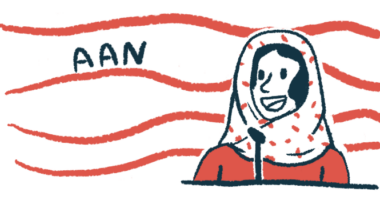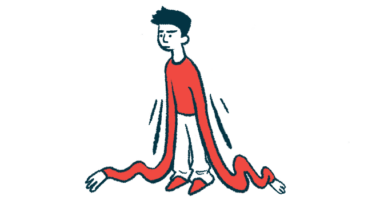Approved Treatments for Huntington's Disease
Abilify
Abilify (aripiprazole) is an antipsychotic medication approved to treat psychiatric disorders such as schizophrenia. It may also be prescribed off-label to treat some symptoms of Huntington’s disease, such as chorea. Abilify is a “dopamine stabilizer,” meaning it can act as a dopamine receptor antagonist when the dopamine system is overactive, and a partial agonist when dopamine levels are low.
Antidepressants
Depression is the most common psychiatric disorder associated with Huntington’s disease, either due to brain changes or as a reaction to the diagnosis itself. Depression may manifest as a sulky mood, tiredness, a loss of interest, poor appetite, and weight loss. These symptoms can be managed with a class of medications known as antidepressants.
Ativan
Ativan (lorazepam) is a medication used for the treatment of anxiety. Huntington’s patients often experience anxiety as they are at risk of developing damage to their GABA-based brain circuits that are responsible for regulating mood and behavior. Ativan is a benzodiazepine that binds to the GABA receptors found on nerve cells, enhancing GABA release in the brain and therefore helping to relieve anxiety.
Austedo
Austedo (deutetrabenazine) is used to treat chorea associated with Huntington’s disease, which involves the excessive release of a chemical called dopamine. Austedo works in the same way as another approved therapy called Xenazine (tetrabenazine). Both inhibit the vesicles that carry dopamine to the area between two nerve cells where it is released, preventing the overstimulation of muscles that cause chorea, but Austedo has a longer half-life, meaning its effects wear off slower.
Clozaril
Clozaril (clozapine) is an antipsychotic approved to treat severely ill patients with schizophrenia who do not respond to other antipsychotics and also can be used to manage psychotic symptoms such as delusions and hallucinations in patients with Huntington’s disease when other medications fail. Clozaril is a second-generation antipsychotic, which acts on both dopamine D2 receptors and serotonin 5HT2A receptors.
Geodon
Geodon (ziprasidone) is an antipsychotic therapy to treat schizophrenia and bipolar disorder in adults and children older than 10. It also may be prescribed to treat chorea and depression in Huntington’s disease patients. Geodon is a psychotropic agent and a selective antagonist (blocker) of several hormone receptors in the brain. It acts on the serotonin 5HT2 and dopamine D2 receptors.
Haldol
Haldol (haloperidol) is an antipsychotic medication used to treat psychotic disorders and severe behavioral problems such as aggressive and explosive behavior or hyperactivity. In Huntington’s disease, Haldol can ease symptoms of chorea by inhibiting the effects of dopamine and increasing its turnover. It is thought to block so-called dopamine D2 receptors, which prevents dopamine from binding to these receptors, interfering with its action.
Ingrezza
Ingrezza (valbenazine) is an oral medication approved in the U.S. to treat adults with Huntington’s disease who experience the involuntary, jerky movements known as chorea that are a hallmark of the rare disorder. The therapy also is approved for adults with tardive dyskinesia, a movement disorder marked by facial tics.
Klonopin
Klonopin (clonazepam) is a type of benzodiazepine used to manage symptoms of certain epilepsy disorders, akinetic and myoclonic seizures, as well as panic disorder. It also may be prescribed to treat some Huntington’s symptoms. Klonopin works by enhancing the effects of an inhibitory neurotransmitter called gamma-aminobutyric acid (GABA). In patients with Huntington’s, Klonopin is thought to ease muscle tremors, rigidity, and possibly anxiety.
Risperdal
Risperdal (risperidone) is an antipsychotic medication that may be used off-label to treat some of the motor and psychiatric symptoms associated with Huntington’s disease. It binds to and blocks two types of hormone receptors in the brain, the dopaminergic and serotonergic receptors. Inhibiting these receptors is thought to decrease the overactive signaling in the brain that causes chorea, as well as treating depression and apathy.
Seroquel
Seroquel (quetiapine) is an antipsychotic medication for the treatment of schizophrenia and bipolar disorder. It is also used, along with antidepressants, to treat depression. In Huntington’s disease, Seroquel has been shown to alleviate behavioral symptoms and may decrease chorea. It works in two ways: by acting on dopamine receptors and blocking serotonin receptors.
Thorazine
Thorazine (chlorpromazine) is an injection medication that may be prescribed off-label to help manage movement disorders such as chorea in people with Huntington’s disease. Thorazine is a type of antipsychotic therapy a phenothiazine and acts as an antagonist of several neurotransmitter receptors, including dopamine. It reduces the overactivation of nerves controlling movement, easing chorea symptoms.
Valium
In Huntington’s disease patients, Valium is used to treat anxiety and might help alleviate chorea symptoms. It works in a similar way to GABA, a neurotransmitter or signaling molecule in the brain, which acts by binding to GABA receptors, inhibiting neurons. Valium binds to one type of GABA receptors, known as GABAA, and subsequently mimics GABA’s nerve-blocking activity. In this way, it is thought to ease anxiety and chorea symptoms.
Xanax
Xanax (alprazolam) is used to treat anxiety disorders, panic disorders, and anxiety caused by depression. It can also be used to reduce the severity of chorea of Huntington’s disease. Xanax is a benzodiazepine that enhances the effects of GABA, which decreases muscle tremors and anxiety, but also may cause drowsiness. Like other benzodiazepines, Xanax also may worsen psychiatric symptoms of Huntington’s, such as depression.
Xenazine
Xenazine (tetrabenazine) is a medicine developed to treat chorea. Xenazine works by reducing the amount of dopamine in the brain of patients with Huntington’s disease by blocking the action of a group of proteins called vesicular monoamine transporters. It also prevents dopamine from binding to the receptors and passing the signal to other neurons.
Zyprexa
Zyprexa (olanzapine) is an antipsychotic medication to treat schizophrenia, depression, and bipolar disorder. It may be prescribed to treat some motor and behavioral symptoms of Huntington’s disease, sometimes in combination with valproate. The compound is known to block or antagonize two types of key neural receptors: the D2 dopamine receptor and the 5HT2A serotonin receptor, which is thought to ease tremors and depression in Huntington’s patients.






